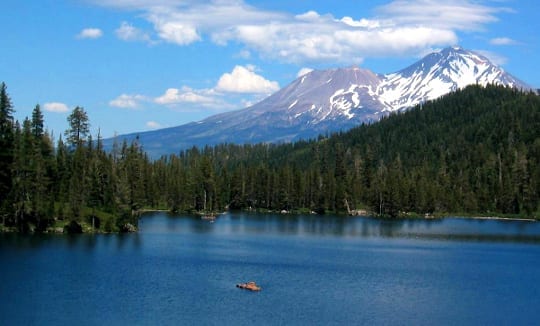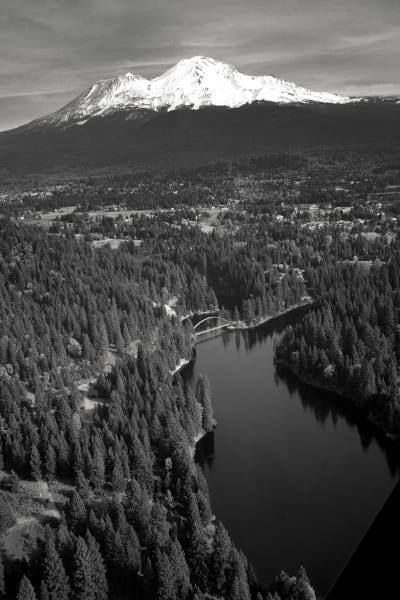CalTrout “Water Talks” Series Explores Castle, Siskiyou Lakes on September 25
For Immediate Release
Contact: Meadow Barr, 530.859/1411
Water Talks: Castle Lake and Lake Siskiyou in Siskiyou County-CA
Do you love Castle Lake? Ever wondered how the lake is doing — or what the bug catchers in the water are for?
Come listen to the whole story of the Castle Lake Environmental Research and Education Program, which has been collecting data on Castle Lake for decades.
Also in the program is a look at Lake Sisikiyou, and its impact on Sisikiyou County.

Siskiyou County’s Castle Lake
What
“Water Talks: Castle Lake and Lake Siskiyou”
When
Tuesday September 25th 2012 from 6:00 pm to 8:00 pm
Where
At the Mount Shasta Sisson Museum located at 1 North Old Stage Road in Mount Shasta.
The informational Water Talks are free and open to the public. This is the first time this information has been presented locally.
“Water Talks: Castle Lake and Lake Siskiyou” will feature in depth presentations from:
- Dr. Rene Henery, Castle Lake Environmental Research and Education Program on “History and Current Research at Castle Lake”
- Randy Akana, Director of General Services for Siskiyou County on “Lake Siskiyou and Box Canyon Dam.”
“I will cover a brief introduction to limnology (the study of lakes and bodies of fresh water), the history of Castle Lake limnological research, and current findings in relation to climate and fish stocking,” said Dr. Rene Henery.
“The history of the County’s involvement with Lake Siskiyou is extensive and something local residents can be proud of. Randy Akana does a superb job in managing Lake Siskiyou for the County and is the best man to explain the operations and the many benefits the public receives,“ said Ric Costales, Siskiyou County’s Natural Resource Policy Specialist.
Attendees can expect to come away with a better understanding of Castle Lake’s unique characteristics, its importance as a scientific reference lake worldwide, and an answer to that question on so many people’s minds about “how is the lake doing”?
In addition, people will know more about the different functions of their beloved recreational playground, Lake Siskiyou.

Lake Siskiyou’s Wagon Creek arm
Water Talks
Water Talks are an ongoing series of informational and educational presentations with local and regional experts sharing their knowledge with the public on a range of water related topics. The purpose of Water Talks is to provide a place to learn about water related topics.
Water Talks is a project of California Trout. California Trout is a nonprofit organization dedicated to seeking workable solutions for fisheries restoration throughout California.” For more information contact Meadow Barr, California Trout Outreach Consultant at 530-859-1411 or mbarr@caltrout.org.




